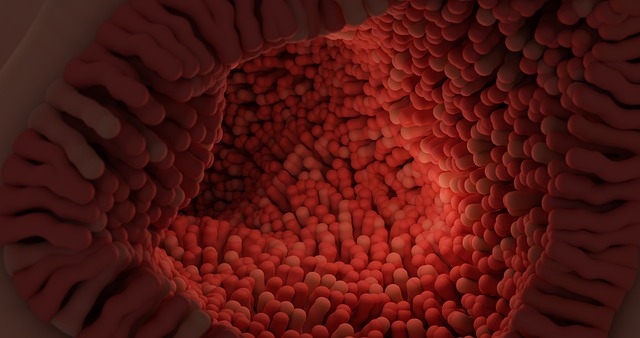What is SIBO?
SIBO (small intestine bacterial overgrowth) is an imbalance of the microorganisms that keep your digestion healthy. When the small intestine is overrun by bacteria, especially the wrong sort, it can cause unpleasant symptoms such as gas and diarrhea. It can also impair your digestion and absorption of nutrients from food.
Bacteria in the small intestine are usual and healthy, but too many can create digestive issues, especially if they are the incorrect kind. The incorrect bacteria can crowd out the helpful bacteria you need, and they can disturb your digestive system by grazing on things that aren’t suited for them.
Causes Of Small Intestine Bacterial Overgrowth
SIBO typically begins when your small intestine fails to properly pass food through your body. Bacteria multiply and linger too long. The “bad” germs can multiply too quickly, creating an imbalance, if the “good” bacteria that aid in digestion can’t keep up with them.
The following causes may lead to small intestine bacterial overgrowth (SIBO):
- Abdominal surgery complications, such as those related to gastric bypass for obesity and gastrectomy for the treatment of peptic ulcers and stomach cancer.
- Internal adhesions, which can wrap around the outside of the small intestine, and intestinal diverticulosis, which is characterized by protruding pouches of tissue, are structural issues in and around the small intestine.
- Certain medical diseases, such as Crohn’s disease, radiation enteritis, scleroderma, celiac disease, diabetes, or others, might delay the flow of food and waste items through the small intestine (motility).
Also, Read Understanding Diabetes: What is Diabetes? Types, Causes, Symptoms, Management
Symptoms OF SIBO
SIBO symptoms mostly impact the gastrointestinal tract. Symptoms could include:
- Stomach ache
- bloating
- cramps
- diarrhoea
- constipation
- indigestion
- The regular feeling of fullness
- gas
- Weight loss
Risk factors
Things that can cause or increase the likelihood of SIBO include:
- Age
- Anatomy
- Immunodeficiency
Certain gastrointestinal diseases can impair intestinal motility or cause structural issues in the intestine, including:
- Diabetes.
- Lupus.
- Gluten intolerance.
- Diseases of the inflammatory bowel.
- irritable bowel syndrome.
- Pancreatitis.
- Cancer of the colon.
- Scleroderma.
- Chronic renal failure.
- Cirrhosis of the liver.

Diagnosis
SIBO symptoms may evoke those of numerous different diseases. Consult a gastroenterologist if your symptoms persist. The digestive system is their area of expertise.
They’ll presumably demand testing like:
- X-rays, CT scans, and MRIs. These are imaging procedures used to examine medical conditions in your intestines.
- blood tests. To look for vitamin deficiencies or anemia
- stool tests to check for issues like the amount of fat your body is absorbing
- Fluid culture and aspiration of the small intestine. To determine what kind of bacteria it contains, they take a small sample of the inside fluid and do a lab test called a culture.
- Hydrogen breath test. The levels of hydrogen and methane in this air are measured to see if they are high enough to indicate SIBO.
Also Read: Reasons Why You Should Not Eat Fruits Empty-Stomach.
Treatment
Antibiotics and dietary modifications can be used to treat SIBO. If you are dehydrated or not absorbing nutrients properly, you might need to supplement with water, vitamins, or minerals.
The number of bacteria in the small intestine may be reduced with antibiotics, but the root cause that gave rise to the problem will remain untreated. You will also need to start therapy for the underlying disease if a doctor believes that your SIBO is caused by it. Alterations to your diet may also be beneficial.
Diet for Small Intestine Bacterial Overgrowth
What you should eat:
- meat
- fish
- eggs
- crackers, gluten-free
- oatmeal
- unsweetened cereal (made from low FODMAP grains)
- spaghetti squash and summer squashes
- broccoli (heads only, less than 3/4 cup)
- leafy greens
- carrots
- rice or gluten-free noodles
- olives
- peanuts
- potatoes
- pumpkin
- quinoa
- seeds
- some fruits (blueberries, grapes, oranges, and strawberries)

What you should not eat:
- high-fructose corn syrup
- agave nectar
- honey
- soda and soft drinks
- garlic
- onions
- asparagus
- butternut squash
- cauliflower
- artichokes
- beans
- apples
- dried fruits
- sausage
- flavored yogurts
- ice cream
- sweetened cereals
- barley
- rye
- grains
- peas
- mannitol
- sorbitol
Prevention
- Add exercise to your daily routine.
- At least three hours before going to bed, avoid eating.
- Stop eating in between meals (or experiment with intermittent fasting).
- Consume a plant-based, nutrient-dense diet.
- Control your stress levels.
- Consider getting an intestinal massage.





